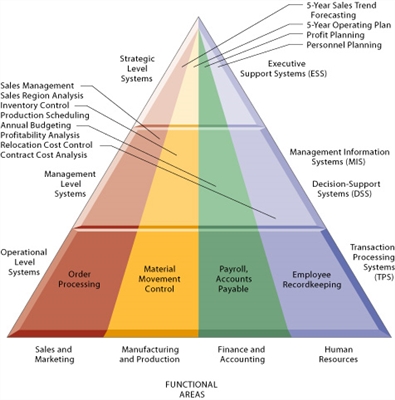Moral norms and fashion are short-lived, and "nerds" do not reckon with them
What unites fashion and moral standards? At first glance, nothing. But in fact, both phenomena are limited by time and location.
Example. Check out photos from the 1990s - how much fashion has changed! Or, having gone to Japan, you may be surprised at how modern youth dresses.
Moral fashion, that is, behavioral norms, also depends on time and place.
Example. The difference in the moral guidelines of the Germans of the Second World War and the citizens of modern Germany.
Fashion for clothing and morality is constantly changing. But "nerds" are people who are not socially developed, they are not trying to be like everyone else. “Botanists” spend their time and energy on gaining knowledge without bothering to follow fashion trends.
Example. Surely, one of your friends wears one jacket every day for five years.
"Nerds" are unpopular, especially at school. To become the queen or queen of the graduation party, you usually need to follow the trends of fashion and morality. But after school, in the real world (where it is not so important to be fashionable), “nerds” are more lucky than the rest.
Computer hackers are like artists
Hearing the word "hacker", most imagine a cold, calculating person who illegally invades other people's computers and is engaged in boring, analytical work. Now think about the artist. An image of an inspired genius pouring soul on canvas is presented.
This perception is erroneous. In the computer world, the term "hacker" refers to outstanding programmers who can do almost anything, and not necessarily criminal. Moreover, computer attacks require a creative mind rather than a mathematical one.
Hackers and artists are alike: they solve problems through creation.
Example. The author of the book was taught to develop computer code on paper, bring it to perfection, and only then transfer it to a computer. But the creative approach turned out to be more effective: he began to write code in the program and solve problems as they arose, just as the artist first makes sketches and starts from them, rather than meticulously planning the whole picture in advance.
Hackers, like artists, create an abstract value that is difficult to measure. The only way to evaluate it is to find out how much people like it. Software should satisfy the needs of the user, and art should please the public.
The author discovered these similarities when he began to study at an art school, having already received his education in computer science. He noted that both directions have the same goal: to create great creations.
Talented hackers are born rebels
It seems that for programming it is necessary to strictly adhere to the established rules, otherwise many errors will occur, right? But being a hacker often means breaking the rules. Like any profession, this business can be learned only by looking at the work of its predecessors. If you want to really understand the topic, you have to break the laws: the work that interests you can be protected by intellectual property rights.
Hackers are intelligent and curious, they are interested in modern technologies, for example, advanced software. To master these areas, you may need to hack someone else's computer. Such attempts are illegal, but hackers often commit crimes out of curiosity, and not for profit.When hacking a computer was first classified as a crime, the Federal Bureau of Investigation (FBI) found it difficult to disclose such cases, because the motive was simple curiosity.
Hackers must comply with the laws to avoid problems. But the rebellious spirit to which they owe their talent does not allow this. They question power and deep-rooted ideas. After all, this is the only way to develop innovative solutions for good programming.
Most hackers are “nerds,” who do not care about social norms, so they dispute and improve everything possible.
Starting a startup is a quick way to get rich
Many dream of starting a company on the basis of their own great idea. And if you are a good programmer, do it immediately.
Starting a startup is one way to get rich quick. Your salary for an employee of a large corporation will not increase significantly - no matter how hard you work. Having founded a startup, you will have to work hard, but every hour of work will bring the company closer to success.
Example. The author of the book with two friends worked hard to create the Viaweb online shopping application and eventually sold it for millions of dollars.
Some believe that the concentration of wealth in the hands of the elite is a mistake. But in fact, this is for the benefit of everyone. Wealth is not money, but things that people want, money is just a means of payment. Wealth can be created by anyone, without prejudice to others.
Example. If you have a retro car and polish it in your free time, then you create new wealth without depriving it of another person. Wealth is not limited, so the rich cannot "take it in their hands."
Is it possible to deny that the richest people (company leaders, professional athletes, etc.) worked harder and more productively than others and therefore deserve wealth?
Example. If, when opening a startup, you have to work ten times more than an office worker, isn't it fair that you will earn ten times more? Especially if you create a product that is useful to everyone.
End-user feedback critical to product and company success
Artists should please the public, and hackers should please the user. When developing a product, the end user should take center stage.
Create and release a prototype product as soon as possible to collect feedback from real consumers. This strategy is called "The worse, the better." The release of even a stripped-down version provides valuable feedback that allows you to correct errors and improve the product. This approach was successfully used by writer Jane Austen: before completing the book, she read it aloud to her family, whose members offered their own endings. They were the first users of her "prototype."
A product that does not meet the needs of users will not attract their attention, regardless of its functions.
Example. Will someone buy your furniture if it is beautiful, but terribly uncomfortable? Hardly.
To attract consumers, meet their needs. This is a vicious circle: customers bring you income that you need to invest in product development and marketing.
If you want to sell the company, it will be measured by the number of consumers. The application, which was acquired by 100,000 users, will interest potential buyers more than the application with 300 fans.
Programming languages differ in their purpose, and are constantly being improved.
C ++, Python, Java ... You have probably heard how programmers list programming languages with which they give computers commands. But computers only understand machine language, that is, a combination of zeros and ones that tells you what actions to take. Therefore, programmers need a compiler to translate a programming language into a machine one.
Why so many programming languages? Different programming languages are suitable for various tasks. Even people are sometimes easier to express certain things in one language than in another.
Example. To ask the computer to add the variable Y to X, you need to create two-line code in Lisp, while in Perl you need four lines.
Sometimes in the selected language there are no necessary concepts for the program, and you have to either change it or solve the problem in the current language.
Example. The Python language does not fully recognize the variables X and Y. If you want to add Y to X, you will have to find a workaround by creating as many as six lines of code.
New languages are constantly appearing, and existing ones are being improved. Languages are developed by programmers, adapting them according to their preferences and requirements. This was not possible until the 1980s, as languages were created only by institutions and large companies. But now everyone has the technology to adapt existing languages or create new ones.
A good programming language is tastefully designed and meets the needs of a hacker
If you would evaluate 1000 paintings, then your judgment would be based on your taste. The same is true for hackers choosing between a good and a bad programming language. They appreciate the good taste in languages.
Example. If you developed your own programming language and, after a while, publish a new version, it will be better than the previous one. After all, you will have new skills and taste will improve over the years.
A good programming language meets the needs of a hacker. If the language is too complicated or limited, programmers will choose another. But if it meets their needs, the language will become popular and will improve. Good languages are getting better, as hackers are constantly fixing bugs in them.
Example. The languages Perl and Python were developed by one programmer, but later became available to the public, so that anyone could change and improve them.
Little-known languages can sometimes have their advantages.
Starting a business based on programming, you, not being a programmer, probably have no idea what language the company should use.
Companies prefer popular languages for the following reasons:
- The program will be compatible with many others written in the same language.
- It’s easier to find programmers working with popular languages. An employee who writes programs in a rare language (for example, Lisp) may leave, and then problems arise. If you do not find a replacement, you have to abandon the project.
But do not forget that there will always be more cybercriminals who speak popular languages.
Popular programming languages also have disadvantages:
- Some languages are optimized for certain tasks, which forces developers to use the popular language for any project, and you are unlikely to get the most out of your product.
- Most likely, your competitors are facing the same problem. By choosing a rare language, you will gain an advantage. Competitors will not be able to analyze your activity if your products are based on a different technical platform.
Example. This is what the author did, creating Viaweb in the little-known Lisp language, gaining a technical advantage and leaving his competitors at a loss.
You can get rid of spam
Literally everything is subject to a good hacker, even a problem that we are familiar with: spam - an endless stream of advertisements cluttering up our inbox. There are several methods to combat spam:
1. You can determine the individual properties of spam emails.
Example. Many spam messages start with something like “Dear friend!” You can write a code that will automatically place all messages with this phrase in the spam folder.
2.You can use statistical filtering: each word in the message will be analyzed, and the computer will calculate the probability of whether the message is spam. Possible intruders will be sent to the spam folder.
3. The best option is to personalize the statistical approach, saving some messages, even if statistics show that it is spam.
Example. The author pointed out that messages with the word “Lisp” should be marked as “non-spam”. He also found that the messages of the addresses with which he corresponded were considered safe.
The hacker must also consider the consequences of his actions. In this case, you risk missing important messages, because spam filters do not have 100% accuracy. Periodically you have to check the spam folder. But later you can improve the spam filter so that it no longer makes such errors.
Spam is very annoying, but trying to filter it can cause certain problems.
The most important thing
Computer programming is a creative process, and the rebellious spirit of nerd programmers allows them to create inspirational, innovative solutions. Basing a startup on an outstanding idea, a programmer can get rich.
If you are a programmer and you have an idea for a business, do not miss the chance. It is difficult to get rich as a full-time programmer in a large corporation, since the success of the company has little effect on the salary of employees. If you have a business idea, implement it.
You will have to work harder on your business than in the office. But you can decide for yourself what to do by creating interesting new products that will benefit consumers. Each hour of work will increase the chance of one day selling the company for millions of dollars.



 Shuans
Shuans






